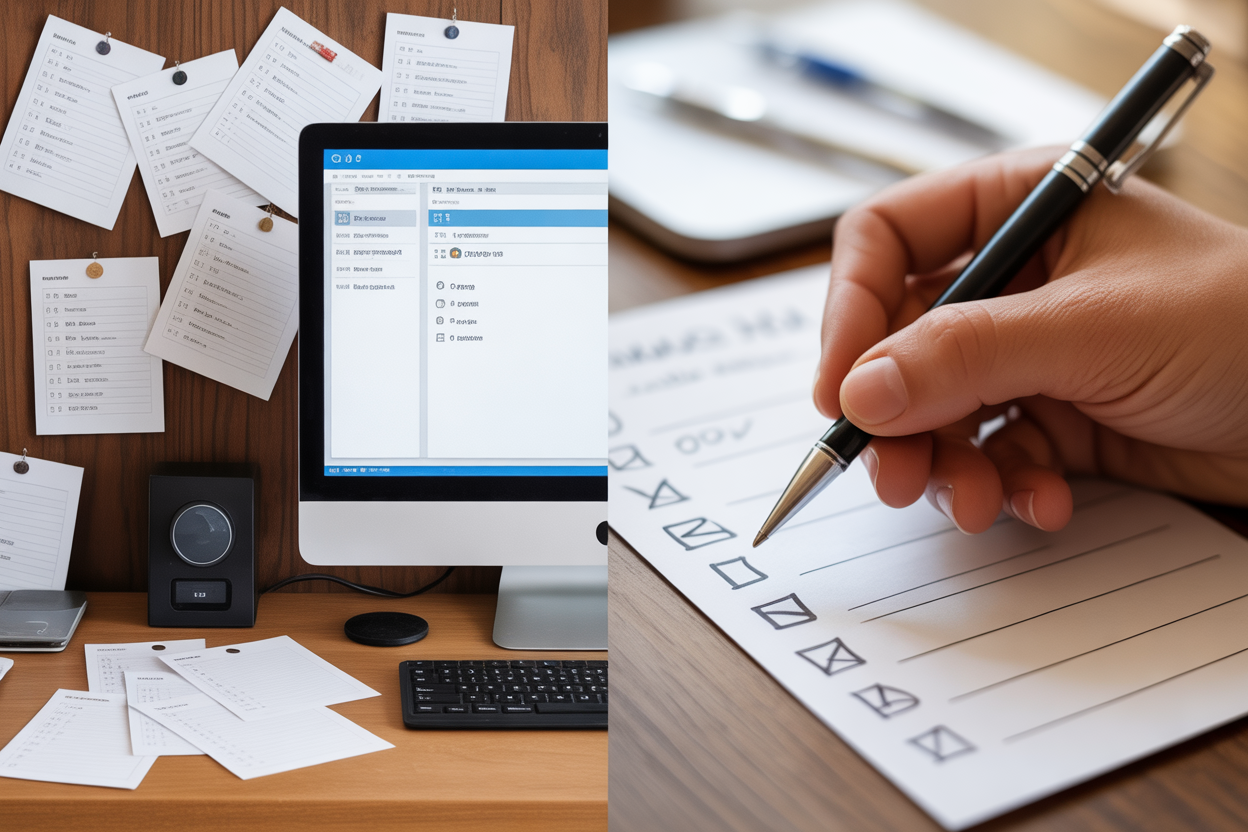
Frequently Asked Questions About Productivity Habits
Is it about the tools or the habits?
This is a common trap. It’s easy to spend weeks searching for the “perfect” to-do list app or calendar software, believing the tool will solve the problem. But a tool is only a multiplier for an existing habit. A great app won’t help if you don’t have the underlying habit of planning your day. Focus on the behavior first. A simple pen and paper for your 1-3-5 list is infinitely more powerful than a complex app you never use. Start with the habit, then find a simple tool to support it.
How do I handle the “switching cost” of starting a new habit?
Don’t try to implement all five of these things at once. That’s a surefire way to get overwhelmed and quit. Start with the one that feels easiest or would have the biggest impact. The 10-minute desk reset is a fantastic starting point because it’s short, has a clear endpoint, and provides an immediate reward the next morning. Once that feels automatic (usually after a couple of weeks), introduce the next one, like the 1-3-5 rule. Small, incremental changes are far more sustainable than a massive, abrupt overhaul.
What if a productivity hack doesn’t work for me?
That’s perfectly fine. Think of these techniques as experiments. The goal is not to follow a rigid dogma but to find what makes you more effective and less stressed. Give a new habit a fair trial, perhaps two to three weeks. If, after that period, it consistently adds more friction than it removes, discard it without guilt. For some people, timeboxing feels liberating; for others, it feels restrictive. The only right answer is what works for your brain and your type of work.
How do I stay consistent when I have an off day?
Perfection is the enemy of progress. You will have days where you’re tired, unmotivated, or a real emergency throws your entire plan out the window. The key is not to be perfect, but to be resilient. Many productive people follow a simple rule: Never Miss Twice. You might miss your desk reset on a Tuesday night because you had to work late. Forgive yourself. But on Wednesday, you make sure it gets done. Missing one day is an accident. Missing two days is the beginning of a new, undesirable habit. This mindset prevents one small slip-up from derailing your entire system.
Can you over-optimize your life?
Absolutely. Productivity is a means to an end, not the end itself. The purpose of building these systems is to create more space for deep, meaningful work and for a rich, present life outside of work. If you find yourself spending more time managing your productivity system than actually doing the work, you’ve gone too far. If a system causes anxiety or rigidity, it’s not working. The goal is focus and freedom, not a life run by a stopwatch. Use these habits to clear the clutter so you can focus on what’s truly important.



